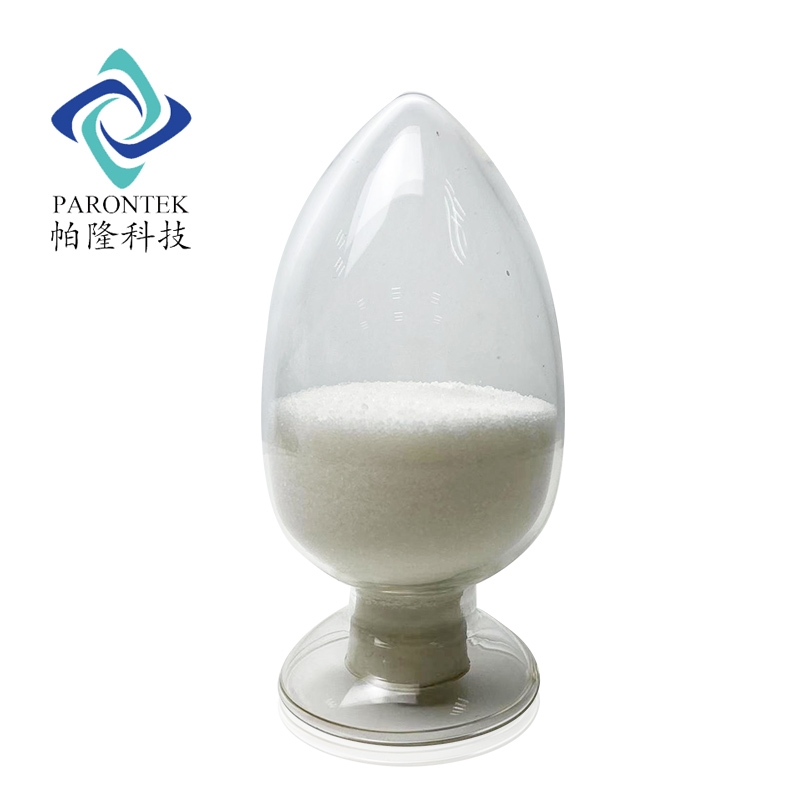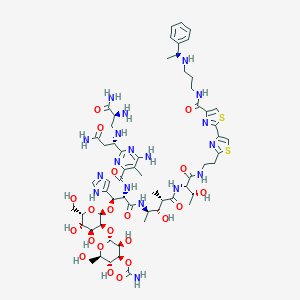Active Pharmaceutical Ingredients
- • Respiratory Drugs (112)
- • Hormones and the Endocrine System (273)
- • Antipyretic Analgesics (165)
- • Antiallergic Drugs (103)
- • Antiparasitic Drugs (127)
- • Antibiotics (530)
- • Antineoplastic Agents (287)
- • Anesthetic Agents (79)
- • Urinary System Drugs (51)
- • Other Chemical Drugs (913)
- • Synthetic Anti-infective Drugs (587)
- • Nervous System Drugs (345)
- • Fluid, Electrolyte, and Acid-base Balance (48)
- • Vitamins and Minerals Medicines (102)
- • Digestive System Drugs (194)
- • Blood System Drugs (85)
- • Circulatory System Drugs (410)
- • Diagnostic Agents (58)
- • Specialty Drugs (108)
- • Drug Metabolism (22)
- • Feed Additive (21)
- • Anti-stress Drugs (1)
- • Drugs Influencing Immune Function (14)
- • Veterinary Raw Materials (23)
- • Inhibitor Drugs (65)
Related News
-
At the API China 2024 Spectacle: A Grand Recap!
2024-10-18 -
The 89th API China & The 27th CHINA-PHARM Exhibition Opened
2024-06-05 -
Overview of China's API industry in 2023
2023-02-01 -
Global Analysis of Active Pharmaceutical Ingredient (API)
2023-01-28 -
Professional and technical dry goods: a brief discussion on the selection of starting materials for chemical synthesis APIs
2022-11-18 -
In 2021, India's Ibuprofen API Export Volume and Price will Fall
2022-06-20
Antineoplastic Agents
-
-
![5-chloro-N-(4-nitrophenyl)pentanamide buy 5-chloro-N-(4-nitrophenyl)pentanamide]()
-
![5-chloro-N-(4-nitrophenyl)pentanamide buy 5-chloro-N-(4-nitrophenyl)pentanamide]()
-
![5-chloro-N-(4-nitrophenyl)pentanamide buy 5-chloro-N-(4-nitrophenyl)pentanamide]()
Industrial Grade / 99%
Request for quotation , get quotes from more suppliers.
-
![5-(Hydroxymethyl)-alpha,alpha,alpha',alpha'-tetramethyl-1,3-benzenediacetonitrile buy 5-(Hydroxymethyl)-alpha,alpha,alpha',alpha'-tetramethyl-1,3-benzenediacetonitrile]()
-
![5-(Hydroxymethyl)-alpha,alpha,alpha',alpha'-tetramethyl-1,3-benzenediacetonitrile buy 5-(Hydroxymethyl)-alpha,alpha,alpha',alpha'-tetramethyl-1,3-benzenediacetonitrile]()
Industrial Grade / 99%
-
![2,2'-[5-(Hydroxymethyl)-1,3-phenylene]bis(2-methylpropanenitrile) buy 2,2'-[5-(Hydroxymethyl)-1,3-phenylene]bis(2-methylpropanenitrile)]()
-
![3,5-Bis(2-cyanoisopropyl) benzalcohol buy 3,5-Bis(2-cyanoisopropyl) benzalcohol]()
Request for quotation , get quotes from more suppliers.
-
![ZENIPLATIN buy ZENIPLATIN]()
Industrial Grade / 99.0%
-
![ZENIPLATIN buy ZENIPLATIN]()
-
![ZENIPLATIN buy ZENIPLATIN]()
-
![ZENIPLATIN buy ZENIPLATIN]()
Industrial Grade / 99%
Request for quotation , get quotes from more suppliers.
Idoxifene
(116057-75-1)-
![IDOXIFENE buy IDOXIFENE]()
Industrial Grade / 99.0%
-
![IDOXIFENE buy IDOXIFENE]()
-
![IDOXIFENE buy IDOXIFENE]()
-
![IDOXIFENE buy IDOXIFENE]()
Industrial Grade / 99%
Request for quotation , get quotes from more suppliers.
5-[Bis(2-chloroethyl)amino]-6-methyl-2,4(1H,3H)-pyrimidinedione
(520-09-2)-
![2,6-DIHYDROXY-4-METHYL-5-[BIS(2-CHLOROETHYL)AMINO]PYRIMIDINE buy 2,6-DIHYDROXY-4-METHYL-5-[BIS(2-CHLOROETHYL)AMINO]PYRIMIDINE]()
Industrial Grade / 99%
-
![2,4(1H,3H)-Pyrimidinedione,5-[bis(2-chloroethyl)amino]-6-methyl- buy 2,4(1H,3H)-Pyrimidinedione,5-[bis(2-chloroethyl)amino]-6-methyl-]()
-
![2,6-DIHYDROXY-4-METHYL-5-[BIS(2-CHLOROETHYL)AMINO]PYRIMIDINE buy 2,6-DIHYDROXY-4-METHYL-5-[BIS(2-CHLOROETHYL)AMINO]PYRIMIDINE]()
-
![2,4(1H,3H)-Pyrimidinedione,5-[bis(2-chloroethyl)amino]-6-methyl- buy 2,4(1H,3H)-Pyrimidinedione,5-[bis(2-chloroethyl)amino]-6-methyl-]()
Industrial Grade / 99%
Request for quotation , get quotes from more suppliers.
1-(3-Chlorophenyl)-1,2-propanedione
(10557-17-2)-
- / 99%
-
![1-(3-Chlorophenyl)-1,2-propanedione buy 1-(3-Chlorophenyl)-1,2-propanedione]()
-
![1-(3-Chlorophenyl)-1,2-propanedione buy 1-(3-Chlorophenyl)-1,2-propanedione]()
Industrial Grade / 99%
-
![1-(3-chlorophenyl)propane-1,2-dione buy 1-(3-chlorophenyl)propane-1,2-dione]()
Request for quotation , get quotes from more suppliers.
5-(Propylthio)-1H-benzimidazol-2-amine
(80983-36-4)-
- / 99%
-
$1-1.3/UNIT FOB
-
![5-(Propylthio)-1H-benzimidazol-2-amine buy 5-(Propylthio)-1H-benzimidazol-2-amine]()
-
![5-(Propylthio)-1H-benzimidazol-2-amine buy 5-(Propylthio)-1H-benzimidazol-2-amine]()
Industrial Grade / 99%
Request for quotation , get quotes from more suppliers.
Peplomycin
(68247-85-8)-
![PEPLOMYCIN buy PEPLOMYCIN]()
Industrial Grade / 99%
-
![PEPLOMYCIN buy PEPLOMYCIN]()
-
![PEPLOMYCIN buy PEPLOMYCIN]()
-
![PEPLOMYCIN buy PEPLOMYCIN]()
Industrial Grade / 99%
Request for quotation , get quotes from more suppliers.
iMatinib related substance C
(938082-57-6)-
![iMatinib related substance C buy iMatinib related substance C]()
Industrial Grade / 99%
-
![iMatinib related substance C buy iMatinib related substance C]()
-
![iMatinib related substance C buy iMatinib related substance C]()
Industrial Grade / 99%
-
![Imatinib Impurity C buy Imatinib Impurity C]()
Industrial Grade / 95%
Request for quotation , get quotes from more suppliers.
Atorvastatin Related Compound D (20 mg) (Epoxide impurity,or 3-(4-Fluorobenzoyl)-2-isobutyryl-3-phenyl-oxirane-2-carboxylic acid phenylamide)
(148146-51-4)-
-
- / 99.00%
-
![Atorvastatin Related Compound D (20 mg) (Epoxide impurity,
or 3-(4-Fluorobenzoyl)-2-isobutyryl-3-phenyl-oxirane-2-
carboxylic acid phenylamide) buy Atorvastatin Related Compound D (20 mg) (Epoxide impurity,
or 3-(4-Fluorobenzoyl)-2-isobutyryl-3-phenyl-oxirane-2-
carboxylic acid phenylamide)]()
Industrial Grade / 99%
-
![3-(4-Fluorobenzoyl)-2-(2-methyl-1-oxopropyl)-N,3-diphenyloxiranecarboxamide buy 3-(4-Fluorobenzoyl)-2-(2-methyl-1-oxopropyl)-N,3-diphenyloxiranecarboxamide]()
Request for quotation , get quotes from more suppliers.
More Information
Antineoplastic agents are a large group of compounds having different structures but with one common antineoplastic property, namely, to inhibit the proliferation of malignant cells. Through other mechanisms, these agents disrupt DNA replication, inhibiting the cell's metabolism, or inhibiting the essential enzymatic process of the cell. For example, alkylating agents, including bendamustine and dacarbazine, introduce alkyl groups to DNA which causes breakage of the strand and death of the alkylated cell.
Fludarabine phosphate and azathioprine are antimetabolites that mimic the natural substrates and thereby block the synthesis of nucleic acid and inhibit the growth of tumours. These agents have proved efficacious in a variety of malignancies and thus are key components to chemotherapy regimens.
Applications of antineoplastic agents include:
● Treatment of hematologic cancers such as leukemia and lymphoma.
● It is used in the management of solid tumours such as breast, lung and colorectal cancers.
● Conditioning before hematopoietic stem cell transplantation.
● Preventive maintenance therapy for cancer recurrence.
● It’s in combination with other therapeutic modalities, such as radiation and immunotherapy, for the sake of enhancing treatment efficacy.
















![2,6-DIHYDROXY-4-METHYL-5-[BIS(2-CHLOROETHYL)AMINO]PYRIMIDINE buy 2,6-DIHYDROXY-4-METHYL-5-[BIS(2-CHLOROETHYL)AMINO]PYRIMIDINE](https://file.echemi.com/fileManage/upload/cas/507/4556ab33-1b4f-4cdc-85ba-dd97ac6e458b.png)
![2,4(1H,3H)-Pyrimidinedione,5-[bis(2-chloroethyl)amino]-6-methyl- buy 2,4(1H,3H)-Pyrimidinedione,5-[bis(2-chloroethyl)amino]-6-methyl-](https://file.echemi.com/fileManage/upload/canonicalSmiles/20220811/17c49d6b52ed416999ea47d02ea3a703.png)












